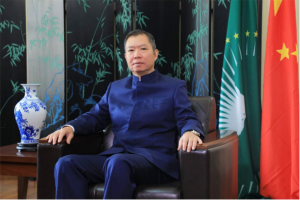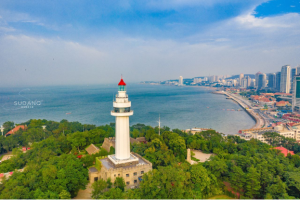Please use the sharing tools found via the share button at the top or side of articles. Copying articles to share with others is a breach of FT.com T&Cs and Copyright Policy. Email licensing@ft.com to buy additional rights. Subscribers may share up to 10 or 20 articles per month using the gift article service.
African leaders have proposed a global carbon tax where major polluters pay more to help poor nations finance the roll out of green energy systems and prepare for the damaging effects of climate change following a three-day summit in Kenya. The Nairobi Declaration, signed on Wednesday, calls for a global carbon price on fossil fuel trade, shipping and aviation, as well as a global financial transaction tax.
It also called for an almost six-fold increase in renewable energy capacity across the continent, where hundreds of millions of people lack access to energy and clean forms of cooking. William Ruto, president of Kenya, host of the summit, told the Financial Times it was time for the international community to discuss a carbon tax, where all countries made a contribution.
“What we are saying is that we want to pay. We do not want to say ‘let those guys pay because they are the polluters’, we are saying, ‘let’s all pay’, and then let’s have a mechanism where we invest these resources where we unlock the biggest value on decarbonisation,” he said. The declaration said a carbon price was key to ensuring “affordable and accessible finance for climate positive investments at scale” and called for the “ringfencing of these resources and decision-making from geopolitical and national interests”. The IMF has previously said a global carbon price would be among the fastest and most effective ways to cut carbon dioxide emissions across the world, although the idea of a global carbon tax has struggled to gain traction among some countries.
The Nairobi Declaration will be used by African leaders as a negotiating document at COP28, the UN climate summit due to take place in the United Arab Emirates at the end of the year. Rwanda’s president Paul Kagame, US climate envoy John Kerry and European Commission president Ursula von der Leyen were among tens of thousands delegates who attended the Africa Climate Summit in Nairobi, which was a precursor for COP28.
The event marked the first time the African continent has come together specifically to consider how to tackle the climate crisis, looking at both challenges and solutions. At the summit, Von der Leyen also called on international leaders to co-operate on formulating a plan for a global carbon price at COP28. African leaders called for an investment of $600bn to meet a renewable energy target of 300GW by 2030, up from the current 56GW. A total of $26bn in funding and investments was announced for various climate-focused initiatives.
The leaders also backed reforms of the multilateral financial system, arguing development banks need to increase concessional lending to poorer countries. The issue of how the World Bank and other multilateral development banks support countries to the finance efforts around climate change has become a key battleground in climate discussions. All countries will need to decarbonise power systems and take other efforts to reduce their greenhouse gas emissions in order to halt global temperature rises. But countries in the developing world receive just a fraction of climate finance and investments compared to western countries.
Source: Financial times
BY STAFF REPORTER
THE ETHIOPIAN HERALD FRIDAY 8 SEPTEMBER 2023




